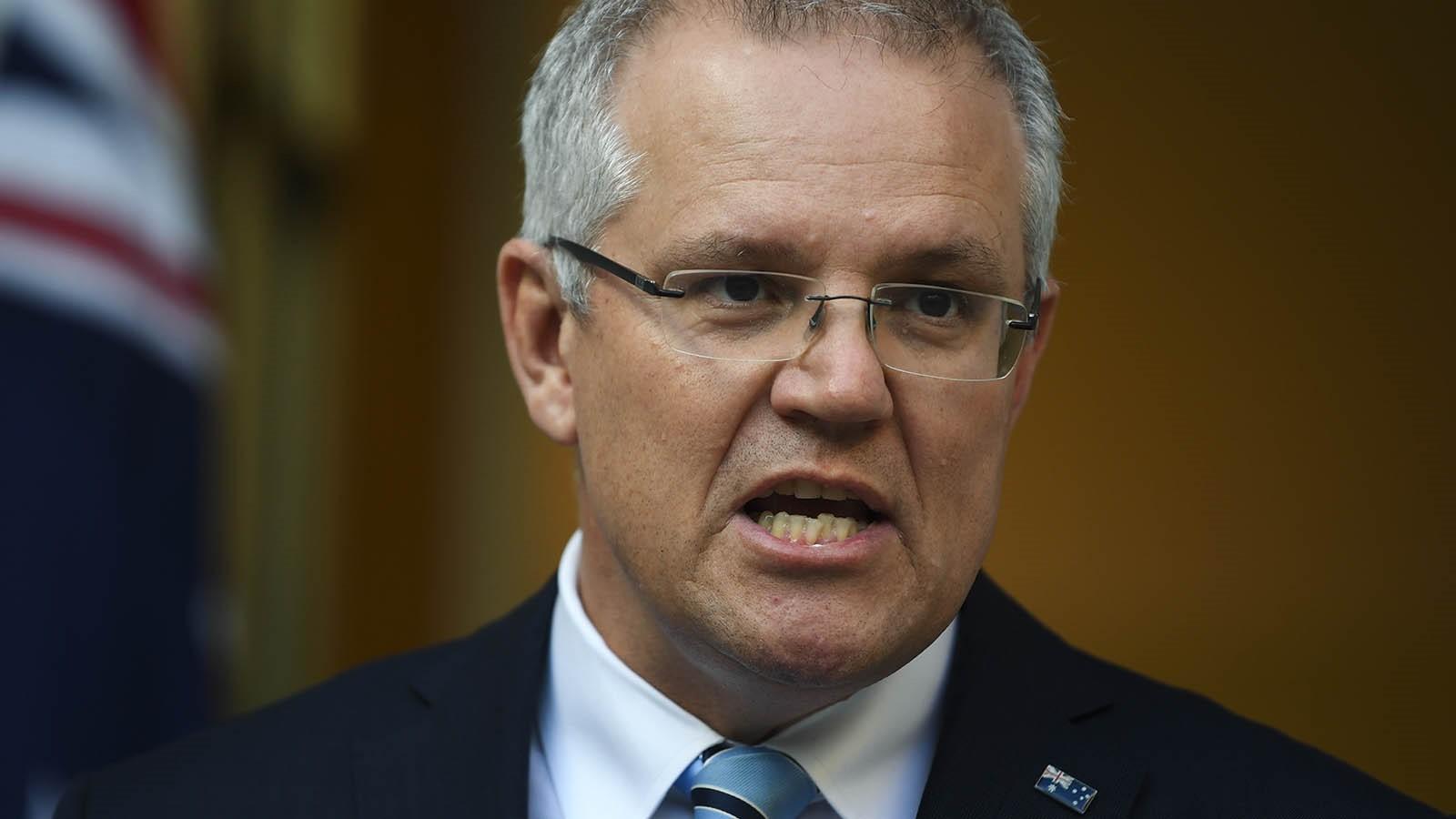
4 minute read
Deflecting Climate Concerns By Demonizing Activists: Activism in Australia
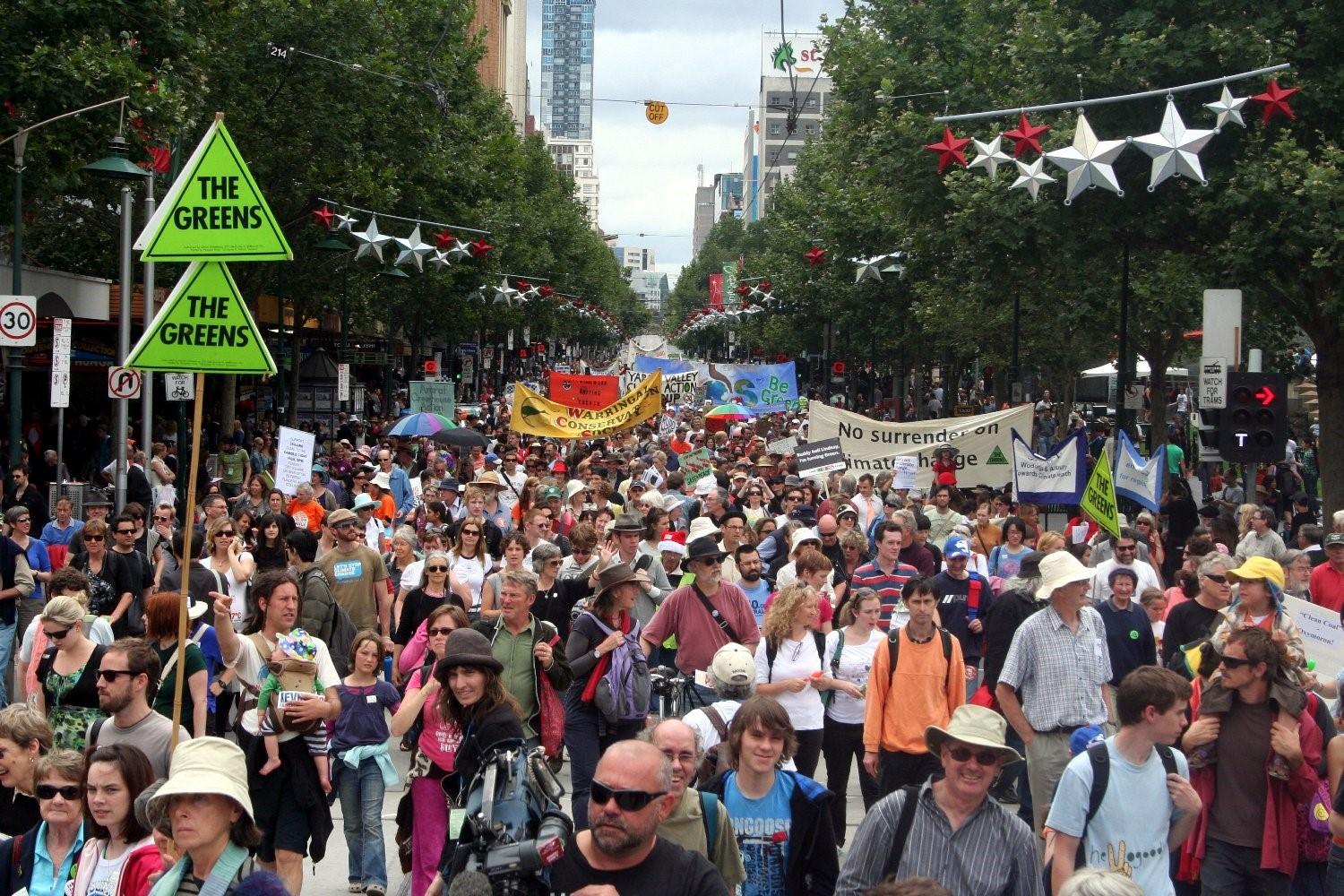
Deflecting Climate Concerns By Demonizing Activists: Activism in Australia
By Felicia Paradiso
It is becoming increasingly difficult to ignore the fact that the future of our planet will be decided in the next few years, but the governments of many countries, the United States included, seem to have no problem with continuing business as usual. While the United States is beginning the process of formally exiting the Paris Climate Agreement, many other countries, such as Australia, are not on track to meet their self-set goals (Hersher; “Is Climate Change to Blame”). People around the world are understandably angry with the lack of meaningful action being taken and are channeling their frustration and desperation into protests. Last month, protesters marching for the climate group Extinction Rebellion blocked roadways in England, Australia, Germany, and other countries (Marshall). On October 31st in Australia, activists barricaded the entry of a mining conference before being broken up with pepper spray by police, and boycotts of companies involved in fossil fuel industries, especially the coal industry, are becoming widespread in the country (Cave and Albeck-Ripka).
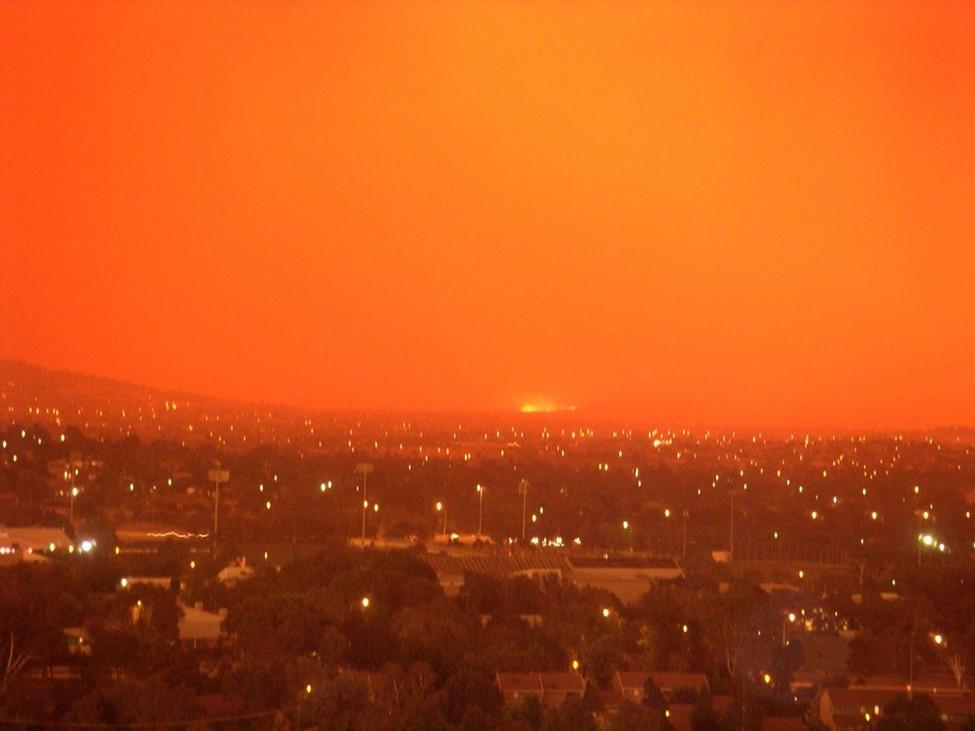
Bushfires, like this one in Canberra in 2003, are not uncommon in Australia, but because of climate change they are happening earlier and more frequently.
While climate change is a global issue, Australia feels it more urgently than some other countries, with extreme bushfires and droughts that are beginning earlier in the year and are increasingly worse in length and magnitude (“Australia Fires”; “Is Climate Change to Blame”). Australian Prime Minister Scott Morrison, who has famously advocated for the expansion of coal mining in Australia, considers the recent protests disruptive and
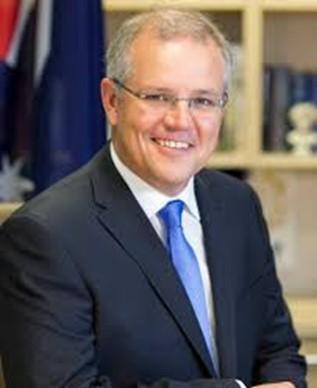
Australian Prime Minister Scott Morrison
disrespectful (Cave and Alberck-Ripka). In response to activists “indulgent and selfish practices” and messages that are “apocalyptic in tone,” Morrison has vowed to instate restrictions to public speech (3AW; Taylor). Morrison takes particular offense with secondary boycotts, where consumers withdraw patronage and support from companies associated with mining interests in addition to the mining companies themselves.
Morrison ignores protesters’ cause in f a v o r o f t h e a r g u m e n t t h a t environmentalists wish to cause harm upon society and the economy stating “it's not okay for environmental… well they’re not environmental, they’re activist groups” to implement secondary boycotts (3AW). He refers to protesters as “anarchist groups” that do damage to innocent, small businesses in an attempt to delegitimize their concerns and justify further mining (3AW). At the same time as he portrays environmental protesters as villains and mining companies as victims, Morrison and his administration actively deny the effects of climate change in Australia. When asked about the relationship between climate change and the bushfires currently raging in New South Wales, Morrison responded “My only thoughts today are with those who have lost their lives and their families.” Australia’s Deputy Prime Minister Michael McCormack responded more aggressively, calling climate change a concern only of "raving inner-city lefties" (“Is Climate Change to Blame”). The message that the government of Australia is sending is clear. It is tired of people protesting that their futures be taken seriously and will do what is necessary to stop them from speaking, even while entire towns burn from bushfires and farmers suffer from drought. Scott Morrison and his administration accept the same strategy used by everyone who calls Greta Thunberg ill-tempered and says that student protesters are too young to understand the damage they might do to the economy. In taking this stance, Morrison underestimates the power of people to stand up against injustices and ignores the inevitability of worsening effects of climate change. It remains to be seen what new policies might emerge in Australia to suppress climate activism, but it is my opinion that any new rules will stop few protesters. Anti-environmental interests may currently be strong enough to have elected Scott Morrison (and Donald Trump) in the first place, but as conditions continue to worsen, more people will become activists in the urgent fight against climate change.
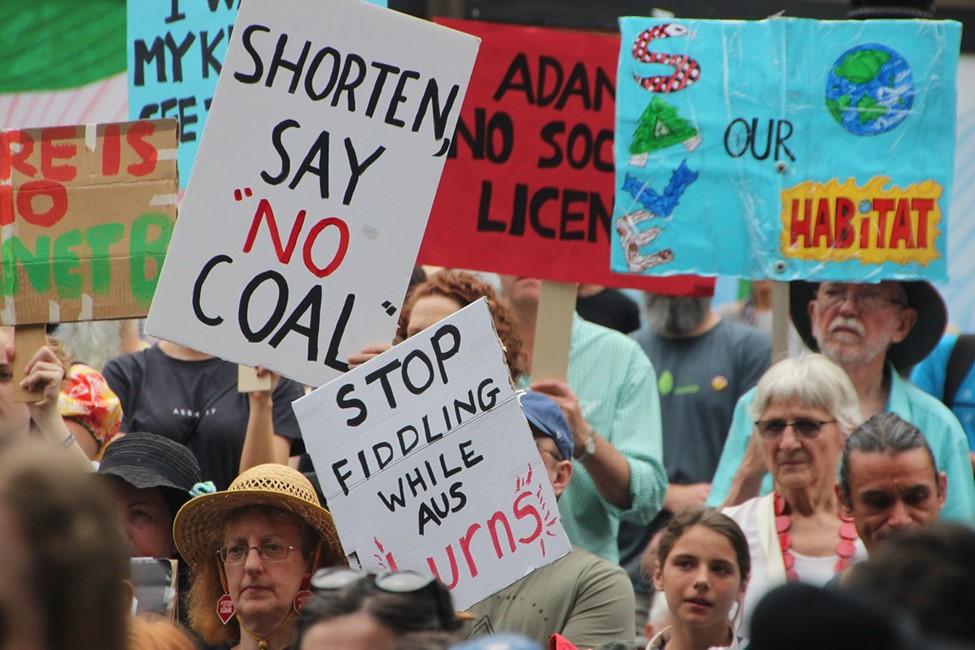
References:
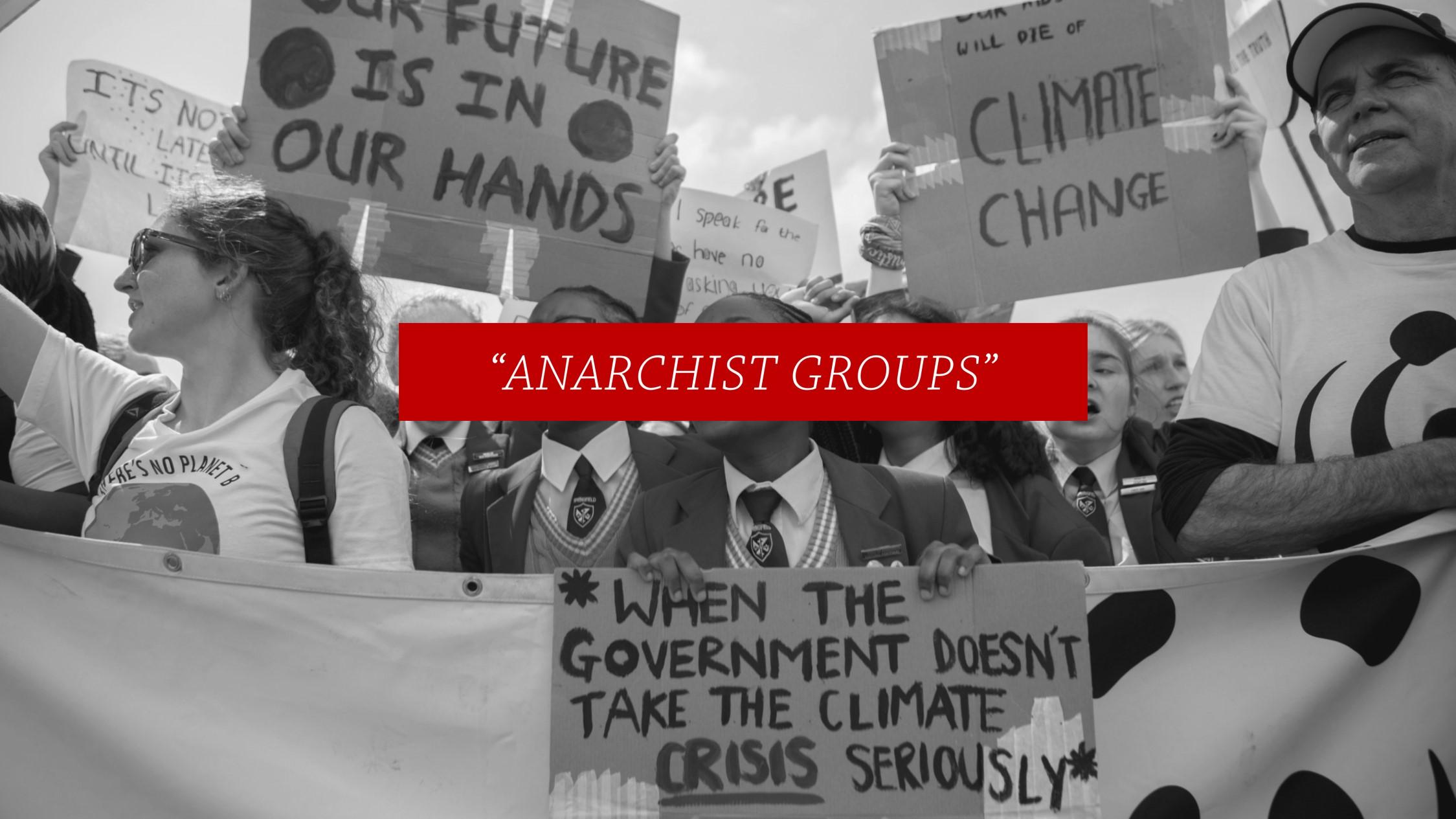
3AW. “Radio Interview with Neil Mitchell, 3AW.” Prime Minister of Australia, 1 Nov. 2019, https:// www.pm.gov.au/media/radio-interview-neil-mitchell-3aw-1.
“Australia Fires: Sydney Blanketed by Smoke from NSW Bushfires.” BBC News, BBC, 19 Nov. 2019, https://www.bbc.com/news/world-australia-50468450.
Cave, Damien, and Livia Albeck-Ripka. “Why Is Australia Trying to Shut Down Climate Activism?” The New York Times, The New York Times, 6 Nov. 2019, https://www.nytimes.com/2019/11/06/world/ australia/australia-climate-protests-coal.html.
Hersher, Rebecca. “U.S. Formally Begins To Leave The Paris Climate Agreement.” NPR, NPR, 4 Nov. 2019, https://www.npr.org/2019/11/04/773474657/u-s-formally-begins-to-leave-the-paris-climate-
agreement.
“Is Climate Change to Blame for Australia's Bushfires?” BBC News, BBC, 11 Nov. 2019, https:// www.bbc.com/news/world-australia-50341210.
Marshall, Alex. “Climate Protesters Take to Streets of Cities Worldwide.” The New York Times, The New York Times, 7 Oct. 2019, https://www.nytimes.com/2019/10/07/world/europe/extinction-rebellionprotests.html?module=inline&login=email&auth=login-email.
Taylor, Adam. “Australia's Prime Minister Pledges to Outlaw Climate Boycotts, Arguing They Threaten the Economy.” The Washington Post, WP Company, 1 Nov. 2019, https:// www.washingtonpost.com/world/2019/11/01/australias-prime-minister-pledges-outlaw-climateboycotts-arguing-they-threaten-economy/.










